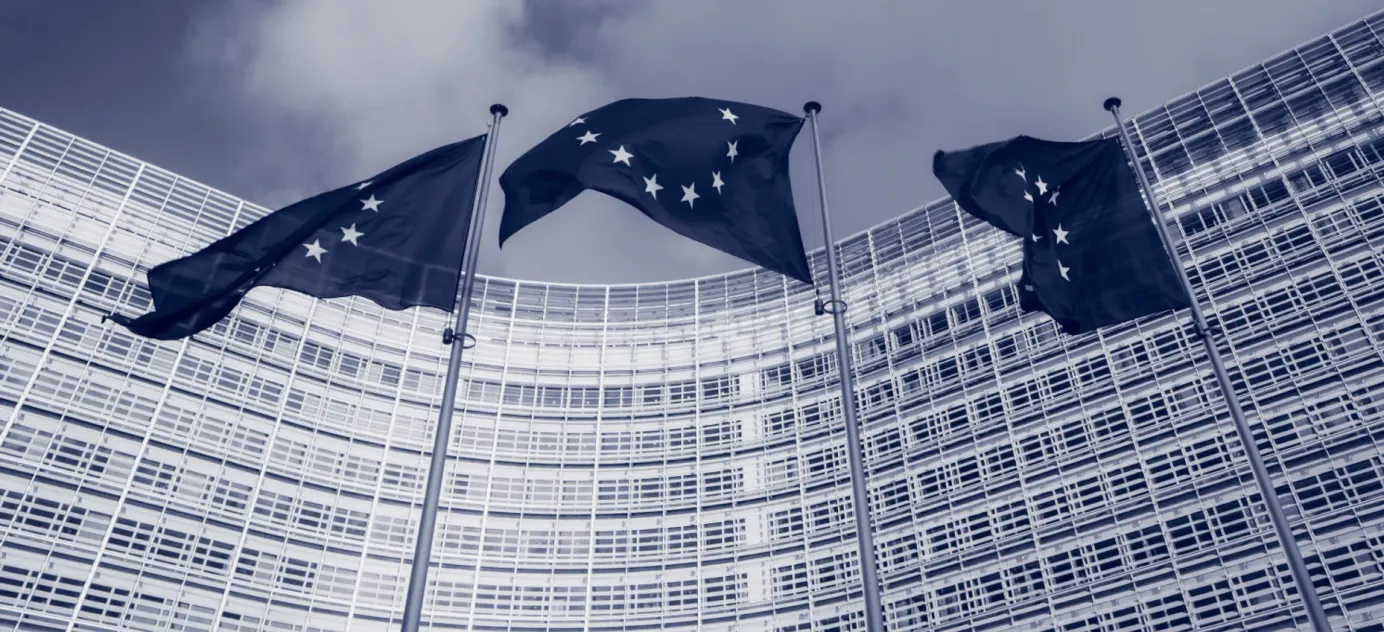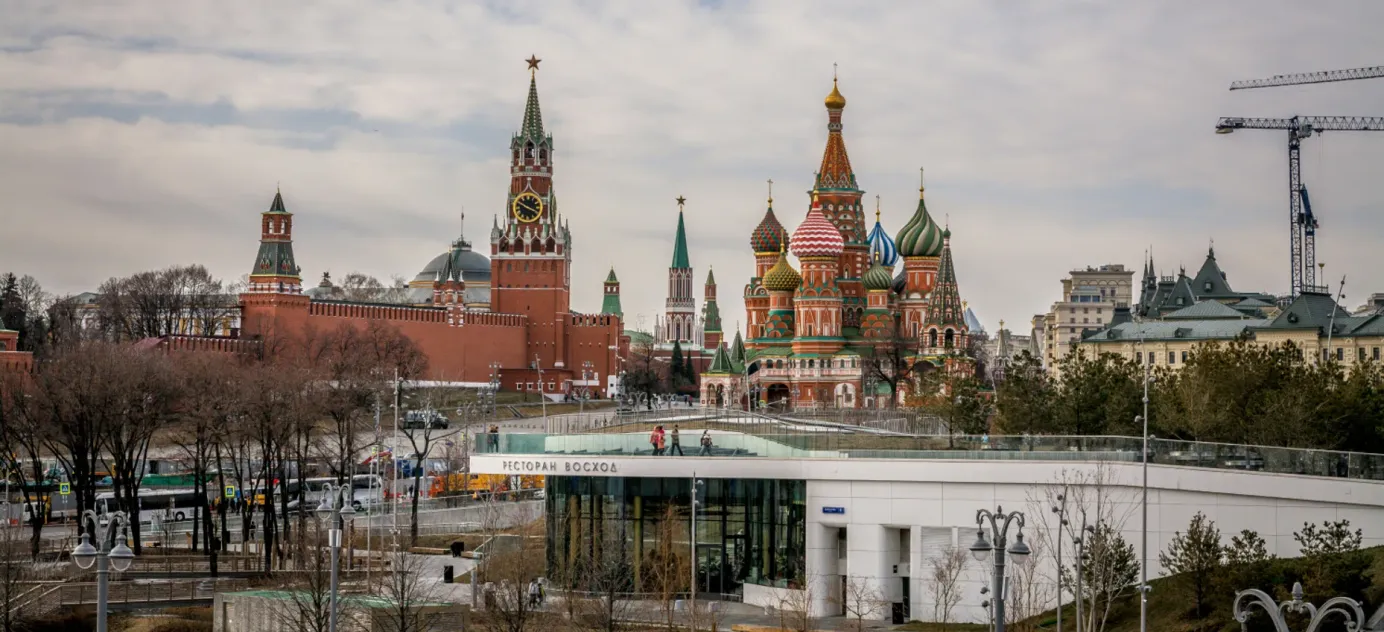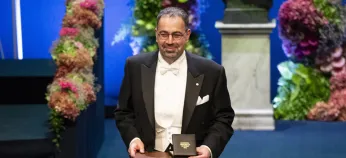
Troll farms and sanctions: Russian opposition gripped by libertarian activist’s questionable reporting
Over the past week, two big talking points have emerged around the Russian opposition — both triggered by political activist Mikhail Svetov, founder of the Russian Libertarian Party, which has found a niche among young Russians on Twitter.
First, Svetov’s SVTV News reported on how leading Russian economists helped to develop Western sanctions that are now affecting ordinary Russians — referring to the sanctions working group based at Stanford University that has been operating for 20 months but only recently came to public attention. The second story it picked up was about how Russian activists had created a “bot farm” to spread criticism of the war and the Russian authorities online. Both articles were marred by serious factual errors, but that did not avert a storm of indignation gathering pace on Russian-speaking social networks.
Context: Who is Mikhail Svetov?
Russian political activist Mikhail Svetov founded SVTV in 2021. In the late noughties, he became a popular blogger writing about his life and discussing politics. In the 2010s, Svetov spent several years in Japan and, in his own words, made a huge amount of money on bitcoin before the cryptocurrency boom.
- In 2016, Svetov returned to Russia and became actively involved in politics. He joined the Libertarian Party of Russia (LPR) and although he was never its leader, he became its most prominent public face. He gained a lot of popularity thanks to his YouTube channel, where he hosts streams, talks about libertarianism and criticizes the Russian authorities.
- Svetov has been in the crosshairs of Russian law enforcement on several occasions. In 2019, he was questioned for 12 hours in a case over a compromising photo of his ex-girlfriend published on his Instagram seven years earlier (the investigation mistakenly believed that she was under 16, the age of consent in Russia, at the time of their relationship). As a result, his account was added to Russia’s register of banned information resources due to false allegations that he had published child pornography.
- In 2021, Svetov was arrested and held in jail for nine days after staging a rally in support of Alexei Navalny. After that incident, he left Russia and now lives in Brazil. In August 2023, a criminal case was opened against him for the “rehabilitation of Nazism,” based on a video in which he sings a song and talks about Ukrainian nationalist Stepan Bandera in a “positive way.”
- His SVTV outlet positions itself as a libertarian channel that doesn’t just write about Russia but also criticizes what it calls the “Western agenda.” This “agenda” is often reduced to the availability of gender reassignment surgery. SVTV’s hallmark among its critics is its repeated coverage of “the world’s bustiest worker” — a trainer from Canada who identifies as female and wears fake breasts.
Story 1: Russian economists drafting sanctions on Russians
The first SVTV story that created an online storm concerns the “International Working Group on Russian Sanctions.”
- The group was formed in March 2022 by Michael McFaul, director of Stanford’s Institute of International Relations and a former U.S. ambassador to Moscow. It comprises 60 experts from the US, Russia, Ukraine and other countries. In the past 18 months, the group has released 15 reports on sanctions recommendations, including using seized Russian assets to help fund the restoration of Ukraine, policy ideas to strengthen financial sanctions on Russia and proposals for how to sanction Russia’s tech sector. Working papers published by the group are of an advisory nature, intended to be used to develop sanctions proposals, the group says.
- The Russians on the team include high-profile economists and political analysts, such as Sergei Guriev (vice-rector of the University of Sciences Po in Paris), Sergei Aleksashenko (former deputy chairman of Russia’s central bank and ex-deputy finance minister), and Maria Snegovaya (political analyst at George Washington University).
- The Russian-speaking internet started paying attention to the group last week after a Twitter thread from a previously unknown Russian activist, Irina Kuklina, picked apart some of the group’s reports and public statements. She cited snippets of its work that proposed banning the issuance of European visas to Russians based abroad, as well as denying them Visa or Mastercard cards (since March 2022 both Visa and Mastercard have disconnected Russian cards from their service). Svetov’s SVTV picked up the thread and stated in its own tweet, which garnered almost 800,000 views: “The names of the architects of sanctions against Russians have become known.”
- Most of the anger on social media was targeted at Guriev and Aleksashenko. They were accused of personally orchestrating the Western sanctions that have hurt their own compatriots. The economists dismissed these allegations and said that they put their names only on documents dealing with systemic sanctions against Russia, and not against Russians individually.
- Nonetheless, Alexashenko’s signature appears on one report proposing a ban on issuing visas to Russian citizens. The economist said this was down to the nature of working in such a broad group. “You might find one point in 100 which is formulated in a way that you do not feel is correct and refuse to sign. Or you can look past it (and sacrifice your pride),” Alexashenko said. Guriev said Russians should blame Putin, not the West, for the costs of sanctions. “I understand perfectly well that while Putin’s regime is in power, it will try to shift the burden of sanctions onto ordinary Russians,” he wrote. “But this is not the fault of the Western coalition, which is trying to stop the war, but Putin, who took the Russian people hostage.”
Story 2: The ‘Elf factory’
The second story that caused a storm among the opposition was about how Alexei Navalny’s Anti-Corruption Foundation is allegedly running an anti-Kremlin “bot farm.”
- The essence of the report, which was derived from a single source, was that Navalny’s foundation operates what it called an “Elf factory” (a deliberate reference to Yevgeny Prigozhin’s notorious pro-Kremlin “Troll factory”), where staff are paid to post criticism of the Russian authorities and the war in Ukraine online. For example, posts that describe Putin as a “crazy grandad in the bunker” who is leading Russia to chaos. In addition, the “elves” allegedly sometimes launch special campaigns, including posts in support of Navalny and his foundation. The report claimed that the factory is funded by the Free Russia Foundation, an anti-war group.
- Navalny’s Anti-Corruption Foundation described the allegations as false and pointed out that it has no connection with the Free Russia Foundation. The SVTV article was criticized by other journalists for failing to actually investigate the claims, and instead relying on comments by a single source.
- Nevertheless, a version of the “Elf factory,” where staff are hired to spread criticism of Putin and his war, does in fact exist. A year ago, the independent Fontanka news site reported that a “reverse troll factory” had been set up in the Georgian capital of Tbilisi. It was supposedly paying $52 a day for staff to post 240 anti-Kremlin comments online and had recruited staff from among the thousands of journalists, activists and other dissenters who left Russia for Georgia following the invasion of Ukraine.
- After the publication of the SVTV report about the alleged Navalny “bot farm”, the Free Russia Foundation confirmed that it had indeed created its own anti-Kremlin online operation, part of which was called the “Legion of Elves.”
Why the world should care:
The fact that the two main news stories of the week in opposition circles revolved around topics that have long been well-known and publicly available demonstrates the kinds of topics that continue to dominate conversation among anti-war Russians. First, the problem of getting foreign bank cards has not disappeared. After Visa and Mastercard were disconnected, Russians cannot use their Russian-issued cards abroad, and it is becoming more and more difficult to obtain a card from a foreign bank without other documentation, such as a residence permit or registration. Meanwhile, reports about using “bot farms” to combat Russian propaganda raises questions about ethics, especially given how the Putin regime continues to use its own “trolls” to promote its narrative online.





